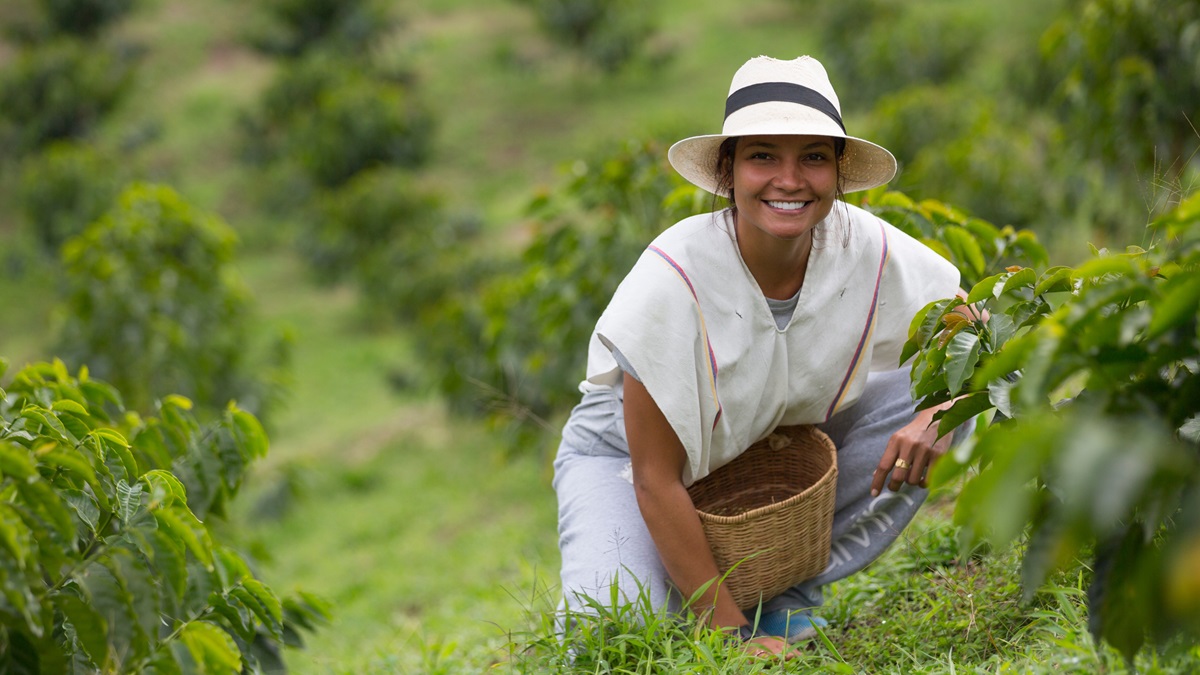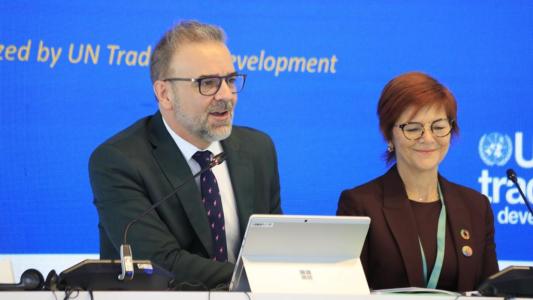For the first time, the conference marks a thematic day to showcase trade as a powerful force for biodiversity conservation, better livelihoods and sustainable development.
© Shutterstock/fernandoalonsostockfilms | Sustainable trade helps conserve natural resources and empower local communities.
The inaugural “Trade Day” took place on 26 October during the at the United Nations-led 16th meeting of the Conference of the Parties to the Convention on Biological Diversity (COP16) held in Cali, Colombia.
The event underscored the indispensable role of international trade in conserving biological diversity and fostering social inclusion and sustainable development.
“By embedding the environmental dimensions of sustainable development into trade and trade policies, we can minimize the trade-offs between economic growth and environmental degradation,” UN Trade and Development (UNCTAD) Deputy Secretary-General Pedro Manuel Moreno said during the introduction session, emphasizing the COP16 theme of “Peace with nature”.
© Ministry of Trade, Industry and Tourism, Colombia | Deputy Secretary-General Pedro Manuel Moreno (left) spoke at COP16 Trade Day on 26 October, joined by Chantal Line Carpentier, Head of trade, environment, climate and sustainable development at UNCTAD.
Speaking alongside the deputy secretary-general, Luis Carlos Reyes, Colombian minister of trade, industry and tourism, highlighted the growing global demand for sustainable goods.
"We must strengthen our green product offerings and reduce incentives that may be exacerbating the climate problem," the minister said.
Sustainable trade as an enabler of biodiversity
Biodiversity, a crucial and natural defense against climate change, is declining at an alarming rate, with one million species at risk of extinction.
Tackling the crisis head-on, 196 countries in 2022 adopted the Kunming-Montreal Global Biodiversity Framework (KMGBF).
The KMGBF underlined the role trade can play in advancing the framework’s objectives by incentivizing sustainable use, production and consumption and promoting socioeconomic co-benefits.
Moreover, trade can foster opportunities in new sustainable value chains for local communities and indigenous populations whose livelihoods depend on biodiversity, thereby advancing sustainable rural development.
Growing impact of ‘BioTrade’
For over 25 years, UN Trade and Development’s BioTrade Initiative has helped over 80 countries promote sustainable trade, with support from the Swiss State Secretariat for Economic Affairs.
The BioTrade Principles and Criteria provide a set of guidelines which promote conservation, sustainable use, fair and equitable benefit-sharing across the entire value chain.
Between 2003 and 2023, BioTrade sales have grown from $40 million to nearly $40 billion.
This market is expected to expand further, enabling sustainable trade to flourish and, in turn, nourish the biodiversity on which it depends.
Ongoing global cooperation
The KMGBF emphasizes a whole-of-society approach to ensuring that trade benefits biological diversity.
This includes engaging with actors in the social and solidarity economy, such as cooperatives and groups of women indigenous peoples groups, and principles to create more inclusive and sustainable trading practices.
UN Trade and Development is dedicated to shoring up technical assistance and helping countries better integrate biodiversity considerations into their trade policies and practices.
International organizations joining forces at Trade Day
The Trade Day was jointly organized by UN Trade and Development, the World Trade Organization (WTO) and the Convention on Biological Diversity (CBD) Secretariat, the United Nations Environment Programme (UNEP) and global partners.
“The multilateral arena is crucial for mainstreaming biodiversity into global trade practices,” Deputy Secretary-General Moreno told participants.
“The COP16 Trade Day offers momentum for advancing this agenda,” He added.
Other key speakers at the event included: UNEP Executive Director Inger Andersen; Ulla Kask, WTO Coordinator of sustainability issues related to agriculture, and Bianca Brasil, Program Manager of Business Engagement and Mainstreaming at CBD.


